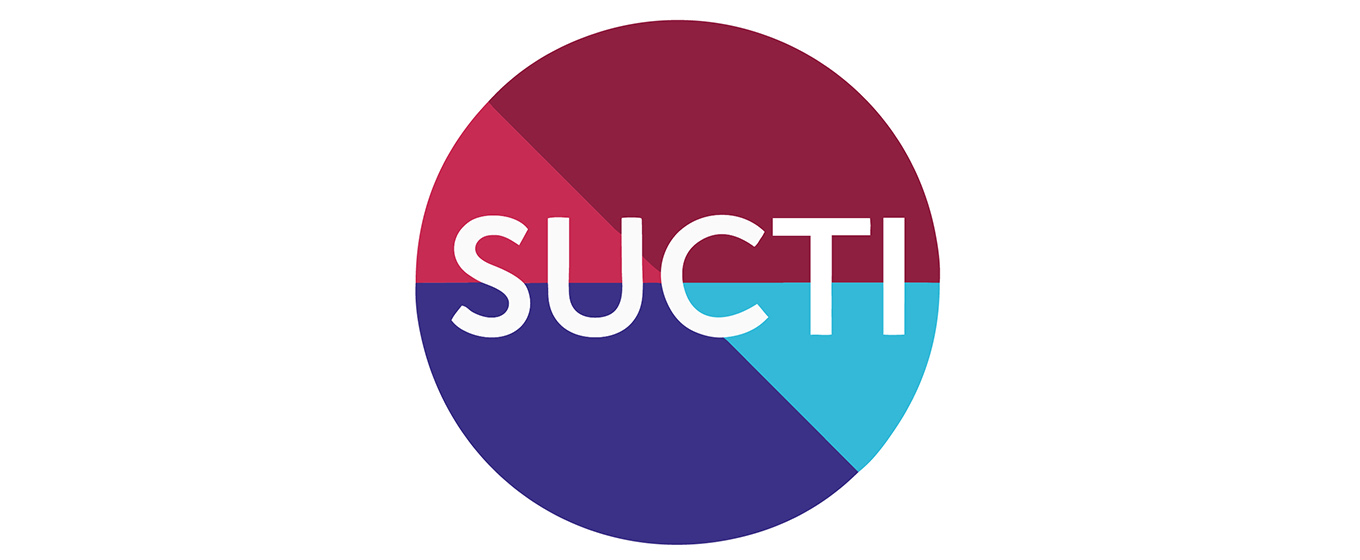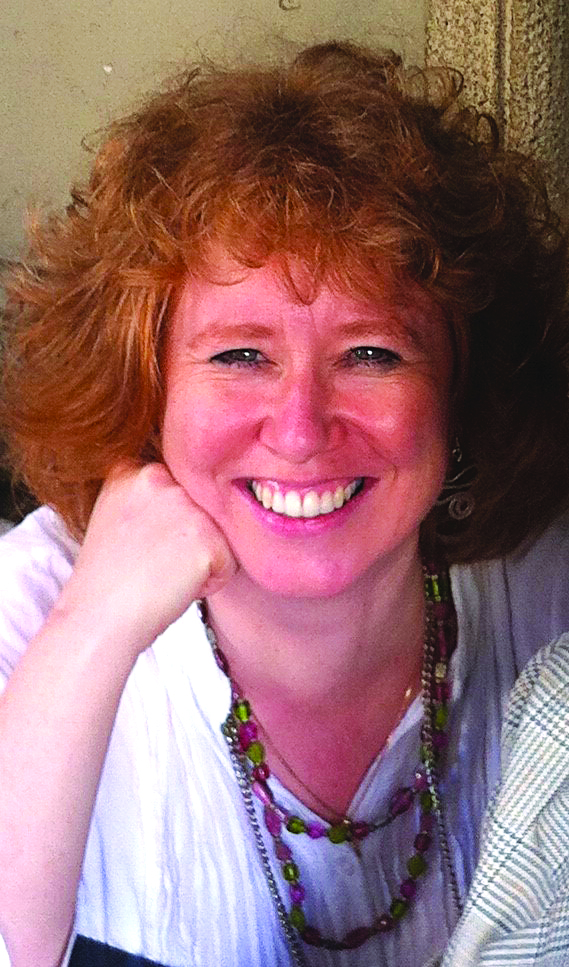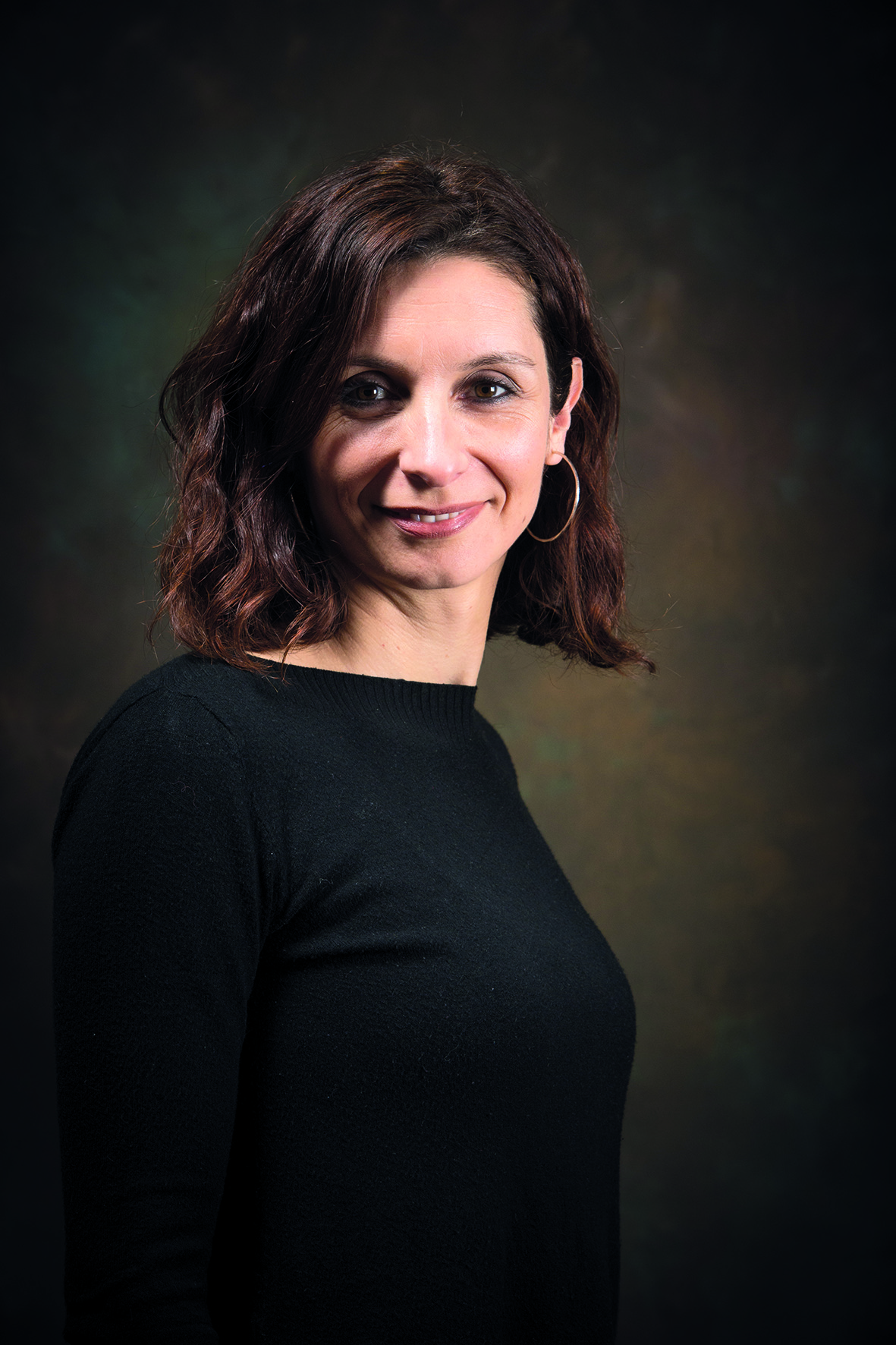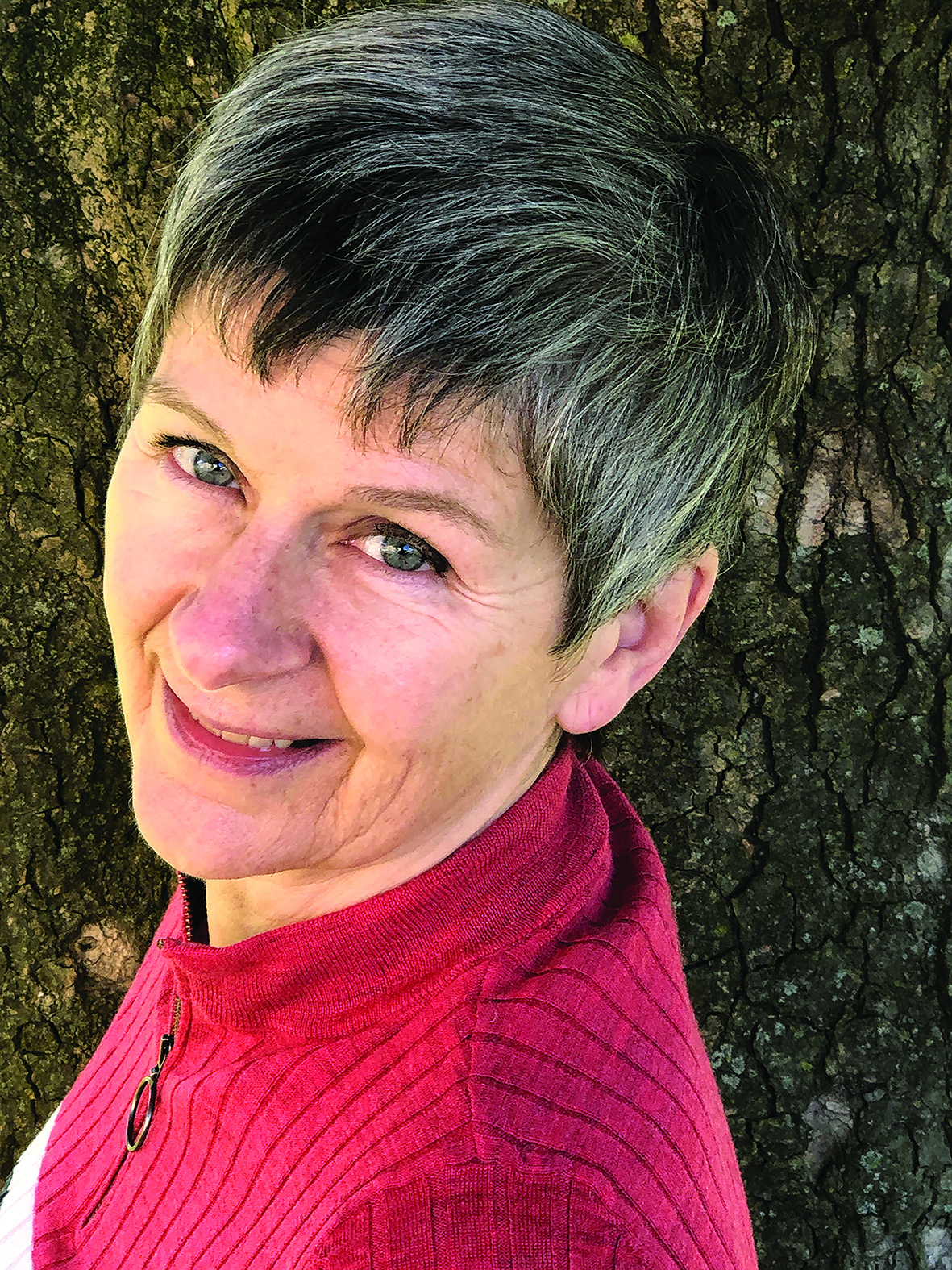Toward Internationalisation for All

In our increasingly connected world, internationalisation and globalisation gather momentum by the day. It is an inescapable aspect of modern life that has also established itself as a significant factor in higher education.
Within the global community, it is impractical for any university to think of itself in isolation and in a response to the global world, many higher education institutions have identified internationalisation as a way for them to realise thier mission more successfully through projects and initatives that help to create and capture opportunities both accross borders and at home.
While traditionally many of these projects focus on student mobility or international conferences for academics, in 2016 the Systemic University Change Towards Internationalisation (SUCTI) project was born at the Universitat Rovira i Virgili (URV) in Tarragona, Spain, headed by Marina Casals Sala, Director of International Relations at the URV.
What is SUCTI?
In 2011 during an International Week at the URV, Marina Casals Sala and her team were preparing activities centred around internationalisation for their students, academics, and staff.
However, when it came to the adminisrative staff, they realised that they did not know what to provide. It was the hardest group to cater for. Then, Marina suggested a course to her Vice-Rector and thus, the
idea of SUCTI was born - a course at home in the language of the institution, aimed at raising awareness of internationalisation among administrative staff outside international offices.
The founders of SUCTI saw the urgent need to empower not only the students and academics but also the administrative staff, who were often left out of the process when internationalisation became institutionalised, and its core functions were handed over to the international officers. Moreover, the administrative staff often lacked the means or were too bound by daily responsibilities to experience mobility and internationalisation abroad, but they were just as important representatives of internationalisation as the other stakeholder groups.
The state of the art of internationalisation prior to SUCTI
Findings from a questionnaire sent out to all the universities in the European Association for International Education (EAIE) database in 2017 revealed that 62.8% or almost two-thirds of the respondents indicated that an internationalisation strategy was in place in their institution and that it was part of the institutional strategy. Yet a further 28.3% indicated that the internationalisation strategy was separate from the institutional strategy. On the other hand, 5% had an institutional strategy that did not consider internationalisation, and 2.2% had neither an institutional nor international strategy. Incidentally, 1.7% of International Directors did not even know if there was a strategy in place or not.
Another key point that emerged from the questionnaire was to establish if there was any in-house training available for the administrative staff in the institutions. 48.3% said that their institution had a general programme for all staff and a further 6.7% said that it was available for some of the staff. 34.4% stated that there was no general training programme as such, but training activities were offered occasionally, and 10.6% said there was no training provided at all.
While most higher education institutions in the questionnaire had a strategy for internationalisation and almost two-thirds of them provided training for all administrative staff, only 27% provide training in internationalisation for all staff, 18.4% for some staff and 12.3% for few staff members. Meanwhile, 40.5% said there is no training for administrative staff in internationalisation.
Universities, despite being places of learning, lacked strategy when it came to fulfilling the mission of learning regarding their own staff and their professional development, especially in the field of internationalisation.
Consequently, the idea of internationalisation at home with SUCTI as its main driving force was a much-needed push for many higher education institutions in the global context.
Realising that the administrative staff is in fact the backbone of any university and that they are often the silent agents of internationalisation, the SUCTI founders aimed to change this perspective and systematically address the administrative staff of universities in the process of internationalisation over a three-year period.
SUCTI objectives
The main objectives of SUCTI were to raise awareness of internationalisation among administrative staff outside international offices and to help institutions enhance management, governance, and the identification of training needs.
Train the Trainers programme
One of the Train the Trainers programmes, where Università Cattolica’s trainers along with colleagues of many other European universities were trained, happened during the spring of 2019 in Poznań, Poland. It was an intense week full of training activities.
The training was divided into two different parts - the first part involved teaching the content and how to deliver it, for example, intercultural communication, what does it mean and how it works. The second part of the training was practical and consisted mostly of group work and learning about tools that taught the trainees to deliver the material creatively.
A trainer remembers that “One of the tasks was to present Università Cattolica and talk about the internationalisation strategy in Cattolica for three minutes using examples of the weather forecast. For example, internationalisation is like a hurricane in our university, or it’s a bright sunny day, and then you had to explain why.”
Among many other creative tools, the training included undertaking ice-breaking activities, such as choosing an animal you feel like today, or choosing which people you would take with you on a deserted island, such as a doctor, athlete or cook. “This turned out to be an exercise on stereotypes. For example, the doctor turned out to be a Doctor of Law, not a medical practitioner. So, you learnt that there were many things you had not considered before,” says the trainer.
The trainers acknowledged that the training had its challenges as well. “It was an adult environment of learning among professionals of universities who came from different organisational units in their universities. When you are a grown-up and you start working, you do not expect to learn in the same way as you were learning back in school or university.”
Once the training was done, all the newly trained trainers brought the knowledge back to their home universities and prepared to teach the staff using many of the same tools and activities they had learnt in Poznań.
However, perhaps the biggest takeaway for the new trainers was the realisation that there was a completely different way of presenting a topic to the audience than what they had thought of before. Evaluating the methodology they learnt, the trainers consider the engagement of the audience and allowing the audience to move towards the answer and explore the topic deeply, some of the most valuable tools learnt during the week. “Engage the audience, try different methods to engage the audience, it doesn’t always have to be ‘Raise your hand and speak,’ it doesn’t always work for everybody.”
The trainers remember the programme as a “Breath of fresh air,” which gave them insightful methodology on how adults learn and how to engage them. “Instead of imposing internationalisation top-bottom, it is a bottom-up approach. It is crucial to make the people involved feel important, as well as value each one of them. Internationalisation is a mission. It is a trend everywhere.”
Development of the activities
According to the needs and objectives set out at the beginning of the project, SUCTI provided the administrative staff of various universities around Europe, including Università Cattolica del Sacro Cuore, with knowledge, skills, and tools related to their university’s internationalisation process.
The transmission of knowledge happened on two levels. Firstly, the trainers were chosen for the Train the Trainers Programme. These were staff members from the project partner universities, who went to Poznań, Poland, where they got the training. Università Cattolica sent three trainers there. Secondly, once the trainers had been provided with the right methodology, knowledge, tips, and manuals on how to best present the course back home, a three-day-long course was developed, and the newly prepared trainees could go on to train their administrative staff peers at their home universities.
The staff trainers at Università Cattolica recognised the shift in perception that the acquired knowledge applied back home had on the administrative staff regarding internationalisation. “It was an important step towards creating a very successful global community at the university level. What used to be labelled as ‘international’ was perceived as a matter of the international offices and their activities. We soon discovered that it is not a matter of activities that belong to whom, but a matter of approach to the things that you do in your everyday job.” The trainers also emphasise the importance of including all the university staff in the process of internationalisation. “It is important that all the university staff has the chance to be exposed to this training because then the approach that they put in place when they are doing their everyday job can become more international.”
The format of the three-day-long course as suggested by the SUCTI Trainers manual and methodology was participatory and interactive as it must be fun for people to learn and finally become change agents for internationalisation. Some of the interactive activities included doing short ice-breakers and playing games, such as cutting up a magazine for images of vehicles (bicycles, cars, yachts, and aeroplanes) and discussing which vehicle best corresponds to the impression they have of the speed of internationalisation at their university. Other activities included inviting experts on certain topics and doing presentations where the listeners could take an active part in asking questions and forming discussions.
The positive impact of the course was undoubtedly felt by the trained administrative staff. Francesco Susca, who works in the Career Management and Student Services office and was one of the administrative staff trained at Università Cattolica. He says, “SUCTI made me realise that my work is useful not only for the domestic students but also for the international students. It helped me understand the needs of the international students, which are different from those of the local students. At my office, I’ve noticed more commitment to managing the exam schedules to facilitate the international students and their residency here in Italy.” In addition, Francesco believes that “SUCTI confirmed my thoughts, and it was comforting - internationalisation should be a concern of every office that deals with international students, not only of the international office. Differences are always a resource and never an issue to be solved.”
Meanwhile, Sabrina Cliti, a trainee from Università Cattolica’s PR and Media office, recognises the lasting personal impact of SUCTI. “This course opened my mind even more internationally and made me realise how fruitful and exciting it would be making professional experiences and visits abroad as administrative staff,” adding that, “It was an experience that pushed me beyond the already known.”
SUCTI impact and outcomes
The impact of SUCTI has reached far and wide. It is work in progress, yet SUCTI has provided some important and tangible outcomes. One of the most substantial first-hand outcomes of SUCTI in Università Cattolica is the synergy among Cattolica International and the other University units. Before SUCTI, Cattolica International was often seen as a virtually separate entity by many of the University staff. Before the training, many of the administrative staff could not relate to what Cattolica International personnel were doing, whereas after the course the purpose of the International Office became much clearer and the cooperation between the various University offices became more successful thanks to the newly acquired understanding of internationalisation and its importance in the wider university context.
Another important change was the initiative to translate the canteen menu into English at Università Cattolica making it much easier and safer for international students to choose a meal to cater for different dietary choices that can be influenced by religion, cultural background or even food allergies. Whereas in Universitat Rovira i Virgili in Tarragona, Spain a janitor had a practical idea to provide bathroom symbols in Chinese for the large Chinese student community present in the University who due to their completely different background were not able to recognise the typical Western symbols.
CHEI and internationalisation at Università Cattolica
At Università Cattolica, the SUCTI project was conducted under the supervision of the Centre for Higher Education Internationalisation (CHEI) headed by Professor Amanda Murphy. CHEI proudly celebrates its 10th anniversary this year. Additionally, Associate Director at CHEI, Fiona Hunter, was one of the members who conducted the preliminary research on the state of the art of internationalisation in European universities prior to SUCTI.CHEI, however, has a globa
CHEI, however, has a global - not European - circle of interlocutors, with whom it initiates dialogue and exerts influence in many different areas. CHEI Director Amanda Murphy observes “Internationalisation of higher education is a transversal process, affecting all aspects of higher education - students, professors, academics, and administrative staff. There is nobody untouched by internationalisation.”
CHEI promotes and conducts research, training, and policy analysis to strengthen the international dimensions of higher education. In addition to overseeing international projects at Università Cattolica such as SUCTI, CHEI also provides PhD programmes and Research Training Seminars, which aim to bring up a younger generation of people who are innovative and well prepared to work in the field of international education through transversal training in various areas of research.
As Associate Director Fiona Hunter notes, “Our focus is on professionals who want to combine practical knowledge and enhance their ability to make an impact, to make change happen within their institutions and more broadly in the field through a research contribution.”
Perhaps the biggest strength of CHEI is its international pool of talent. As Director Murphy notes “There are very few PhD programmes on internationalisation of higher education, and we attract mature students from all over the world. It is the network of these people working together with renowned international academics on research or training projects that is the strength of CHEI, and is conducive to positive change in universities all over.”
The enduring pay-off of SUCTIInflue
t pandemic and the ever more globalised world many universities are now taking individualised approaches to integrate international elements into their teaching programmes, research, and service deliveries at home. A rising number of technology-supported activities have created new opportunities for the internationalisation of higher education. For example, students can now remain at home while using technology to study with an institution or programme that is simultaneously located abroad such as the CHEI Research Training Seminars.
While the Erasmus+ SUCTI project ended in October 2019, the incentive of the project has not disappeared. That same month SUCTI creators came up with an initiative to offer training to anybody who wanted it, providing two courses a year in the fall and spring. Additionally, learning from the successful experience, the initiators of SUCTI have taken a step further and launched SUCTI Academia (SUCTIA), a new project that aims to raise awareness among academic staff and shift the internal culture of our institutions towards internationalisation.
“I remember all the meetings with the partners, we became a family. It was wonderful to work together towards an exciting new goal,” recalls Marina Casals Sala. The SUCTI family is still growing and the ideas behind it become increasingly appreciated as new projects and initiatives such as SUCTIA take place. SUCTI has l
eft a legacy of knowledge that is unique in the current world. It helps us to understand and appreciate that internationalisation is for everyone, and each person plays an irreplaceable and important part in it, whether they are students, academics, or administrative staff members.
 Amanda C. Murphy
Amanda C. Murphy
Amanda C. Murphy (PhD Birmingham) comes from a background of Modern Languages and Applied English and Italian Studies. A full professor of English language and translation at Università Cattolica del Sacro Cuore, in both Milan and Brescia, she became Director of CHEI in 2015. An active promoter of Study Abroad and Exchange at student and faculty level, she has been working since 2015 with the CHEI educational developers on preparing faculty members to teach in the international classroom. Her latest research interests within the field of internationalisation problematise distinctions between English-Medium Instruction as an internationalisation strategy and Englishization, and on innovative models of transnational education on the African continent. Recent publications include “English-medium Instruction and the Internationalisation of Universities”, edited with Hugo Bowles, Palgrave, 2020, ‘Collaborating across Continents – the Challenges of Intercontinental Academic Partnerships’ in ‘EMI and Beyond’, edited by Lynn Mastellotto and Renata Zanin, Bolzano University Press, 2020 and, with Beatrice Zuaro, “Internationalisation vs Englishization in Italian higher education: Reframing the issue” in “The Englishization of Higher Education in Europe” (edited by Bob Wilkinson and Renée Gabriels, Amsterdam University Press, forthcoming).
 Marina Casals Sala
Marina Casals Sala
Marina Casals Sala is Director of International Relations at Universitat Rovira i Virgili in Tarragona, Spain. Marina is a trainer in neuro-linguistic programming and an EAIE trainer, and she has presented at several conferences internationally, both facilitating workshops and giving presentations. As an EAIE active member, she was awarded the Rising Star Award by the EAIE in 2009 in recognition of her contribution to the Association, as well as the Bo Gregersen Award for Best Practice in 2014 as a member of the Green Cockatoo group. Marina was an active member at the EAIE leadership for ten years. Marina is the creator and coordinator of the SUCTI project, which was funded by Erasmus+ and has been recognised with the EAIE President’s Award 2019.
 Fiona Hunter
Fiona Hunter
Fiona Hunter is Associate Director at the Centre for Higher Education Internationalisation (CHEI) at the Università Cattolica del Sacro Cuore in Milan, Italy and a higher education management consultant working with private, public and faith-based institutions around the world on a broad range of issues. She is also member of the International Advisory Board at the Universidad de Granada in Spain and of the Scientific Council of AVEPRO (Holy See’s Agency for the Evaluation and Promotion of Quality in Ecclesiastical Universities and Faculties), as well as Co-Editor of the Journal of Studies for International Education (JSIE). She is Past President of the European Association for International Education (EAIE), and served for 6 years as member and chair of the Board of Directors for Educational Credential Evaluators (ECE), a non-profit education organisation in the United States. She holds a Doctor of Business Administration (DBA) in Higher Education Management from the University of Bath in the United Kingdom. She has written extensively on internationalisation and higher education management and has recently co-published “An illustrated guide to managing institutions of higher education”.

